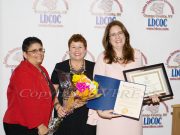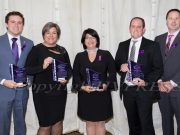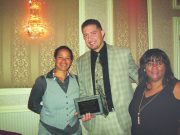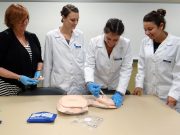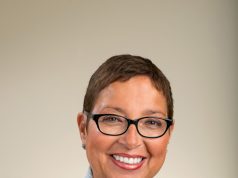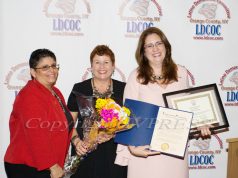The U.S. federal government employs architects, biochemists, software developers, and many other professionals who work to promote the ideals of public service and strengthen America. May Smith, an 85 year-old African American woman who has been a federal employee for more than 65 years, stands out as exemplary.
Beginning her career in an era with very few Black federal employees, Smith has overcome racial adversity while advocating equality in the workplace and delivering innovative improvements to federal agencies across the country. She has experienced change firsthand from increased race and gender equality in government agencies to an African American president leading the country.
She has set high standards and worked diligently in the U.S. government since before the Civil Rights Movement.
“Throughout my career I’ve always remembered one thing: the only place you’ll find success before work is in the dictionary,” states May Smith, Coordinator for the Wetlands Outreach Program for the U.S. Environmental Protection Agency’s Pacific Southwest Region. “I am constantly trying to improve myself and always hoping that other women are as well.”
Smith was born in Corsicana, Texas in 1926 and began her distinguished federal career in San Antonio, but she has been a driving force for public administration improvements in federal agencies throughout the country, including relocation allowances for dependent elderly parents of federal employees who must relocate for work. Additional improvements include a computerized travel advance system for HUD employees, an efficient system to speed processing of HUD payments to landlords during disasters, allowing the use of federal funds for travel club membership to obtain discounts on federal travel, and allowing Administrative Leave for jet lag after a full day’s travel or crossing the International Date Line.
“Every time I think about May and what she’s accomplished despite many hardships and obstacles, my spirit is uplifted,” says Wendell Smith, longtime friend and colleague in the EPA’s Tribal Water Division. “She has been, and still is, a role model for me and so many other people.”
Numerous federal agencies have acknowledged Smith’s invaluable contributions. She has received various recognitions and awards, including the highest award for a federal employee. Smith has also been awarded a Federal Employee of the Year Award in Administration, but recognition of her achievements is not limited to the federal government and in 2008 Smith was honored with a lifetime achievement award from the American Biographical Institute.
May Smith’s success extends beyond the workplace. Beginning a graduate program at the University of San Francisco at age 54, she wrote an award-winning thesis revealing barriers facing women of color in government agencies and proposing innovative recommendations addressing issues of discrimination. Smith wrote the thesis ,“A Profile on Minority Women Professionals in the Federal Government,” while continuing her work as a federal employee, attending classes, and helping to raise her five children. Her thesis was the first study focusing on minority women in federal agencies and was adopted by Equal Employment Opportunity officers and advocates.
Working for the U.S. Air Force, Marine Corps, HUD, and EPA, Smith has been setting and achieving goals in the federal government since 1944 and with 2011 marking the 35th anniversary of Black History Month, she continues to set new goals. Smith aspires to obtain a doctorate in Public Administration and become a congresswoman. She studies issues affecting African American women and is an active member of the national Beta Pi Sigma Sorority, which awards annual scholarships to underserved youth. Smith contributes to the EPA as the Senior Environmental Employment grantee in the Water Division, and Administrative Assistant for the Wetlands Program.
“I have one primary goal left and that is to obtain a doctorate,” says May Smith. “I’d like to continue working and making a contribution while I reach my goal. I’ll stop when my body tells me it’s time to stop.”




